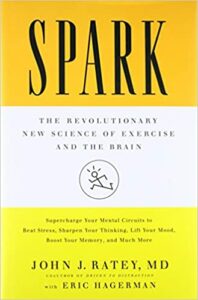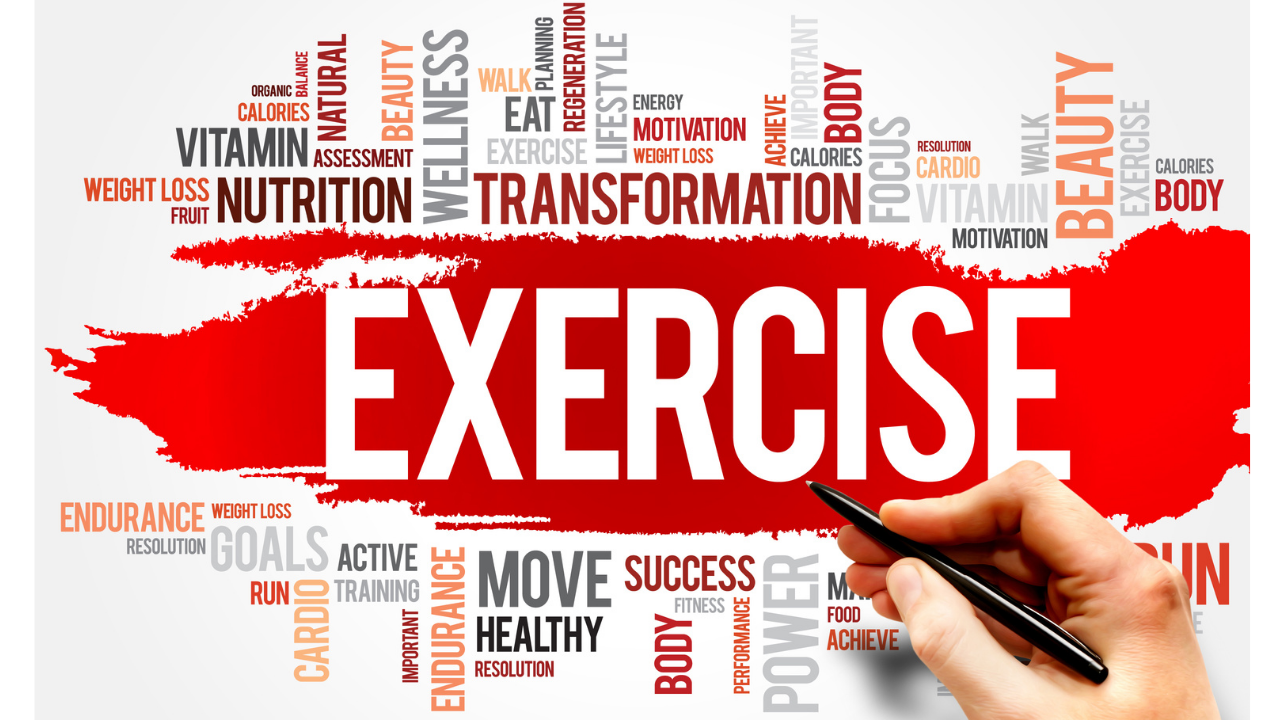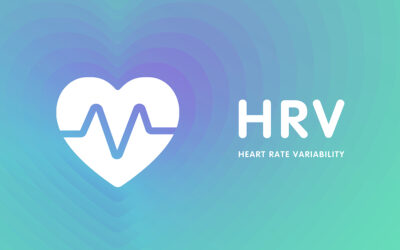You’re probably heard these benefits of exercise:
- Elevated Mood
- Weight Management
- Better Sleep
- Reduced Stress
- Lower Blood Pressure
But did you know exercise also makes you smarter?
That’s what John Ratey, MD author of Spark: The Revolutionary New Science of Exercise and the Brain found in a case study of a junior high school in Naperville, IL. These kids participated in an intense, daily physical education (PE) program where students were graded on effort and the amount of time spent in their target heart rate zone as measured by a heart rate monitor. This non-traditional fitness rather than sports directed form of PE resulted in fitter and more intelligent students. After implementing the program, Naperville jumped to number one in the world in science and ranked sixth in math as measured by the Trends in International Mathematics and Science Study (TIMSS).
As Ratey details in his book, exercise rapidly increases chemicals in the brain including  neurotransmitters which are substances that transmit impulses between nerve cells and brain-derived neurotropic factor (BDNF) or brain growth factor. “Miracle-Gro” for the brain is what Ratey calls BDNF. This protein keeps the brain active, young and resilient. It also regulates and enhances the function of the brain cells. For instance, learning is achieved when connections between brain cells are made and bind together, wiring in the pathways for learning and memory. BDNF increases this capacity.
neurotransmitters which are substances that transmit impulses between nerve cells and brain-derived neurotropic factor (BDNF) or brain growth factor. “Miracle-Gro” for the brain is what Ratey calls BDNF. This protein keeps the brain active, young and resilient. It also regulates and enhances the function of the brain cells. For instance, learning is achieved when connections between brain cells are made and bind together, wiring in the pathways for learning and memory. BDNF increases this capacity.
Exercise also increases blood flow within the brain promoting growth of new brain cells through neurogenesis. Contrary to what the researchers anticipated, the area of the brain undergoing the greatest neruogenesis was the Hippocampus which is the memory and learning center of the brain. Scientists expected it to be an area associated with movement. A study of 35 year-olds at Columbia University found a 30% increase in the volume of the Hippocampus following three months of intense aerobic exercise at 75-80% of maximum heart rate four days a week for 40 minutes.
Research in this area began in an effort to understand Alzheimer’s disease. Prior investigation had shown that exercise was one of the three key factors in slowing the decline of aging along with education and self-efficacy. Not surprisingly, studies also concluded that exercise delays the onset of cognitive decline by 7-10 years depending on when an exercise program was started and how much exercise a person regularly preforms.
The ability of the brain to adapt, grow and change over our lifespan is referred to as brain plasticity. When this ability shuts down depression can result. Ratey states that if the brain is not growing it is dying. Depression is a degradation or shrinking of the brain which can be reversed with exercise.
To reap the cognitive benefits of exercise Ratey recommends 30 minutes of aerobic exercise everyday. He also advises including intervals where the heart rate is pushed to higher levels. Movements that involve skill acquisition such as dance, basketball, skiing and so forth are preferred to simulate brain growth.
Our brains are primed for learning after exercise. To take advantage of this Naperville students were encouraged to schedule their hardest classes right after PE. We can also take advantage of this by exercising prior to mentally challenging work, presentations, meetings, etc.
More information
PE4life – a nonprofit organization implementing the Naperville PE model in schools across the US.



